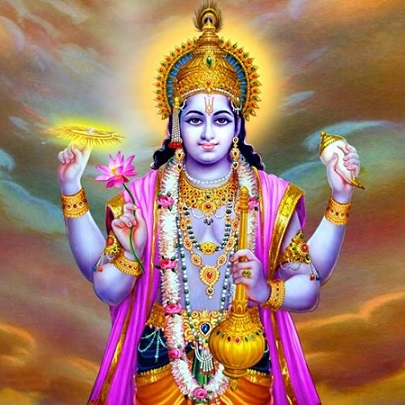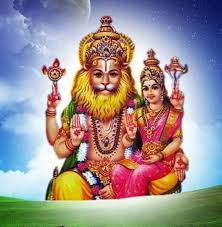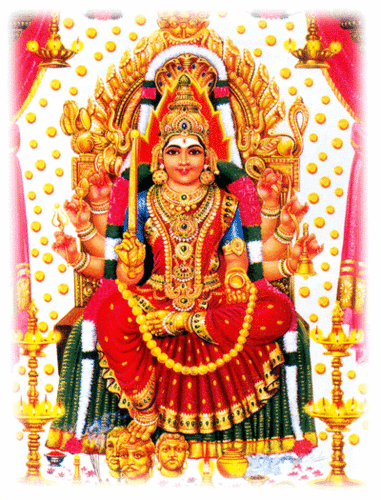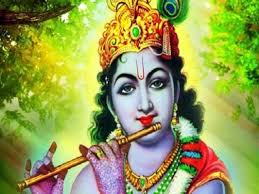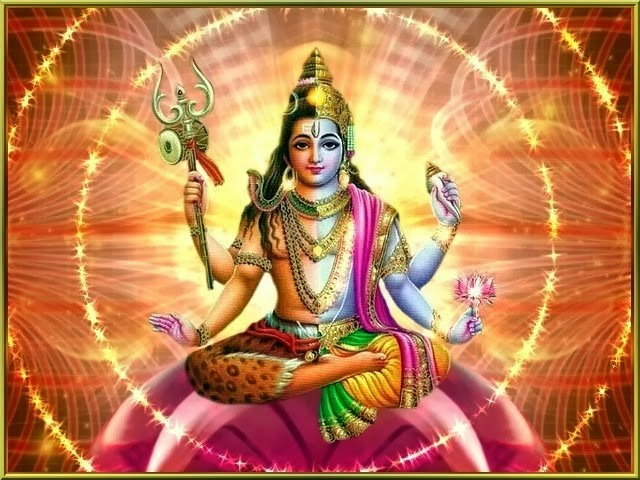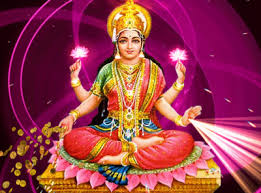
Sri lakshmi ashtothram in Telugu
Sri Lakshmi ashtothram
లక్ష్మీ అష్టోత్తర శతనామ స్తోత్రం
Sri Lakshmi is the goddess of wealth.Sri mahalakshmi Ashtothram can be chanted during puja. Gain Benefits & blessings of Goddess Lakshmi.
శ్రీ మహాలక్ష్మీ అష్టోత్తర శత నామావళి
ఓం వికృత్యై నమః
ఓం విద్యాయై నమః
ఓం సర్వభూతహితప్రదాయై నమః
ఓం శ్రద్ధాయై నమః
ఓం విభూత్యై నమః
ఓం సురభ్యై నమః
ఓం పరమాత్మికాయై నమః
ఓం వాచే నమః
ఓం పద్మాలయాయై నమః (10)
ఓం పద్మాయై నమః
ఓం శుచ్యై నమః
ఓం స్వాహాయై నమః
ఓం స్వధాయై నమః
ఓం సుధాయై నమః
ఓం ధన్యాయై నమః
ఓం హిరణ్మయ్యై నమః
ఓం లక్ష్మ్యై నమః
ఓం నిత్యపుష్టాయై నమః
ఓం విభావర్యై నమః (20)
ఓం అదిత్యై నమః
ఓం దిత్యై నమః
ఓం దీప్తాయై నమః
ఓం వసుధాయై నమః
ఓం వసుధారిణ్యై నమః
ఓం కమలాయై నమః
ఓం కాంతాయై నమః
ఓం కామాక్ష్యై నమః
ఓం క్రోధసంభవాయై నమః
ఓం అనుగ్రహపరాయై నమః (30)
ఓం ఋద్ధయే నమః
ఓం అనఘాయై నమః
ఓం హరివల్లభాయై నమః
ఓం అశోకాయై నమః
ఓం అమృతాయై నమః
ఓం దీప్తాయై నమః
ఓం లోకశోక వినాశిన్యై నమః
ఓం ధర్మనిలయాయై నమః
ఓం కరుణాయై నమః
ఓం లోకమాత్రే నమః (40)
ఓం పద్మప్రియాయై నమః
ఓం పద్మహస్తాయై నమః
ఓం పద్మాక్ష్యై నమః
ఓం పద్మసుందర్యై నమః
ఓం పద్మోద్భవాయై నమః
ఓం పద్మముఖ్యై నమః
ఓం పద్మనాభప్రియాయై నమః
ఓం రమాయై నమః
ఓం పద్మమాలాధరాయై నమః
ఓం దేవ్యై నమః (50)
ఓం పద్మిన్యై నమః
ఓం పద్మగంథిన్యై నమః
ఓం పుణ్యగంధాయై నమః
ఓం సుప్రసన్నాయై నమః
ఓం ప్రసాదాభిముఖ్యై నమః
ఓం ప్రభాయై నమః
ఓం చంద్రవదనాయై నమః
ఓం చంద్రాయై నమః
ఓం చంద్రసహోదర్యై నమః
ఓం చతుర్భుజాయై నమః (60)
ఓం చంద్రరూపాయై నమః
ఓం ఇందిరాయై నమః
ఓం ఇందుశీతులాయై నమః
ఓం ఆహ్లోదజనన్యై నమః
ఓం పుష్ట్యై నమః
ఓం శివాయై నమః
ఓం శివకర్యై నమః
ఓం సత్యై నమః
ఓం విమలాయై నమః
ఓం విశ్వజనన్యై నమః (70)
ఓం తుష్ట్యై నమః
ఓం దారిద్ర్య నాశిన్యై నమః
ఓం ప్రీతిపుష్కరిణ్యై నమః
ఓం శాంతాయై నమః
ఓం శుక్లమాల్యాంబరాయై నమః
ఓం శ్రియై నమః
ఓం భాస్కర్యై నమః
ఓం బిల్వనిలయాయై నమః
ఓం వరారోహాయై నమః
ఓం యశస్విన్యై నమః (80)
ఓం వసుంధరాయై నమః
ఓం ఉదారాంగాయై నమః
ఓం హరిణ్యై నమః
ఓం హేమమాలిన్యై నమః
ఓం ధనధాన్య కర్యై నమః
ఓం సిద్ధయే నమః
ఓం స్త్రైణ సౌమ్యాయై నమః
ఓం శుభప్రదాయై నమః
ఓం నృపవేశ్మ గతానందాయై నమః
ఓం వరలక్ష్మ్యై నమః (90)
ఓం వసుప్రదాయై నమః
ఓం శుభాయై నమః
ఓం హిరణ్యప్రాకారాయై నమః
ఓం సముద్ర తనయాయై నమః
ఓం జయాయై నమః
ఓం మంగళాయై నమః
ఓం దేవ్యై నమః
ఓం విష్ణు వక్షఃస్థల స్థితాయై నమః
ఓం విష్ణుపత్న్యై నమః
ఓం ప్రసన్నాక్ష్యై నమః (100)
ఓం నారాయణ సమాశ్రితాయై నమః
ఓం దారిద్ర్య ధ్వంసిన్యై నమః
ఓం సర్వోపద్రవ వారిణ్యై నమః
ఓం నవదుర్గాయై నమః
ఓం మహాకాళ్యై నమః
ఓం బ్రహ్మ విష్ణు శివాత్మికాయై నమః
ఓం త్రికాల జ్ఞాన సంపన్నాయై నమః
ఓం భువనేశ్వర్యై నమః (108)
Read Maha Lakshmi ashtothram
Read Lakshmi ashtottara shatanamavali in English Script online
Om prakrityai namah
Om vikrityai namah
Om vidyaayai namah
Om sarvabhuutahitapradaayai namah
Om shraddhaayai namah
Om vibhuutyai namah
Om surabhyai namah
Om paramaatmikaayai namah
Om vaache namah
Om padmaalayaayai namah
Om padmaayai namah
Om shuchaye namah
Om svaahaayai namah
Om svadhaayai namah
Om sudhaayai namah
Om dhanyaayai namah
Om hiranmayyai namah
Om laxmyai namah
Om nityapushhtaayai namah
Om vibhaavaryai namah
Om adityai namah
Om ditye namah
Om diipaayai namah
Om vasudhaayai namah
Om vasudhaarinyai namah
Om kamalaayai namah
Om kaantaayai namah
Om kaamaaxyai namah
Om krodhasambhavaayai namah
Om anugrahapradaayai namah
Om buddhaye namah
Om anaghaayai namah
Om harivallabhaayai namah
Om ashokaayai namah
Om amritaayai namah
Om diiptaayai namah
Om lokashokavinaashinyai namah
Om dharmanilayaayai namah
Om karunaayai namah
Om lokamaatre namah
Om padmapriyaayai namah
Om padmahastaayai namah
Om padmaaxyai namah
Om padmasundaryai namah
Om padmodbhavaayai namah
Om padmamukhyai namah
Om padmanaabhapriyaayai namah
Om ramaayai namah
Om padmamaalaadharaayai namah
Om devyai namah
Om padminyai namah
Om padmagandhinyai namah
Om punyagandhaayai namah
Om suprasannaayai namah
Om prasaadaabhimukhyai namah
Om prabhaayai namah
Om chandravadanaayai namah
Om chandraayai namah
Om chandrasahodaryai namah
Om chaturbhujaayai namah
Om chandraruupaayai namah
Om indiraayai namah
Om indushiitalaayai namah
Om aahlaadajananyai namah
Om pushhtayai namah
Om shivaayai namah
Om shivakaryai namah
Om satyai namah
Om vimalaayai namah
Om vishvajananyai namah
Om tushhtayai namah
Om daaridryanaashinyai namah
Om priitipushhkarinyai namah
Om shaantaayai namah
Om shuklamaalyaambaraayai namah
Om shriyai namah
Om bhaaskaryai namah
Om bilvanilayaayai namah
Om varaarohaayai namah
Om yashasvinyai namah
Om vasundharaayai namah
Om udaaraa.ngaayai namah
Om harinyai namah
Om hemamaalinyai namah
Om dhanadhaanyakarye namah
Om siddhaye namah
Om strainasaumyaayai namah
Om shubhapradaaye namah
Om nripaveshmagataanandaayai namah
Om varalaxmyai namah
Om vasupradaayai namah
Om shubhaayai namah
Om hiranyapraakaaraayai namah
Om samudratanayaayai namah
Om jayaayai namah
Om mangalaa devyai namah
Om vishhnuvaxassthalasthitaayai namah
Om vishhnupatnyai namah
Om prasannaaxyai namah
Om naaraayanasamaashritaayai namah
Om daaridryadhv.nsinyai namah
Om devyai namah
Om sarvopadrava vaarinyai namah
Om navadurgaayai namah
Om mahaakaalyai namah
Om brahmaavishhnushivaatmikaayai namah
Om trikaalagyaanasampannaayai namah
Om bhuvaneshvaryai namah
About Lakshmi Ashtothram
Lakshmi Ashtothram is a hymn that contains 108 names of the Hindu goddess Lakshmi, who is the goddess of wealth, prosperity, and good fortune. The hymn is considered to be a powerful way to express devotion to Lakshmi and to seek her blessings for wealth, prosperity, and good fortune.
It is recited as a form of devotion and worship to the goddess, and it is believed that reciting it with devotion can bring blessings, protection, and fulfill the desires of the devotee.
The hymn is traditionally recited on Fridays, which is considered to be an auspicious day to worship Lakshmi, and also on special occasions such as Diwali, the festival of lights, which is celebrated in honor of Lakshmi.
The hymn can be recited at any time of the day, but it is traditionally recited during the morning and evening hours of worship, as these are considered to be the most auspicious times for spiritual practice in Hinduism.
It is also recited by many people as part of their daily spiritual practice and it is believed that reciting it daily can bring blessings and prosperity.
Significance / Advantages of Lakshmi Ashtothram
The Lakshmi Ashtothram is considered to be a powerful hymn that holds great significance in the Hindu tradition. Here are a few key significances of the hymn:
- Devotion to Goddess Lakshmi: The hymn is a powerful way to express devotion to Goddess Lakshmi, who is considered to be the embodiment of wealth, prosperity and good fortune.
- Wealth and prosperity: The hymn is believed to bring blessings, wealth and prosperity to the devotee who recite it with devotion.
- Overcoming obstacles: Lakshmi is considered to be the goddess of wealth, prosperity and good fortune, reciting the hymn is believed to remove obstacles and help the devotee to overcome any challenges they might be facing.
- Spiritual growth: Reciting the hymn is believed to bring spiritual growth and help the devotee to attain a higher level of consciousness.
- Protection: The hymn is believed to bring protection and blessings to the devotee who recite it with devotion.
- Fulfillment of desires: It is believed that by reciting the hymn with devotion, the goddess will fulfill the desires of the devotee.
- Auspicious day: The hymn is traditionally recited on Fridays, which is considered to be an auspicious day to worship Lakshmi.
It’s important to note that these benefits are believed to come from reciting the hymn with devotion and faith, and not just by reciting the words alone.
When to chant Lakshmi Ashtothram?
The Lakshmi Ashtothram can be recited at any time, but it is traditionally recited during the morning and evening hours of worship, as these are considered to be the most auspicious times for spiritual practice in Hinduism.
Some people recite it as part of their daily spiritual practice, while others recite it occasionally or on special occasions such as Diwali, the festival of lights, which is celebrated in honor of Lakshmi.
The hymn is traditionally recited on Fridays, which is considered to be an auspicious day to worship Lakshmi. Also, it’s considered to be auspicious to recite it during the time of Deepavali, which is the festival of lights, and it’s celebrated to honor the goddess of wealth and prosperity, Lakshmi.
It’s important to note that it’s also possible to recite the hymn individually, and many people do so as a part of their daily spiritual practice.
In this case, you can chant it with devotion at any time of the day that is convenient for you.
How to chant Lakshmi Ashtothram?
Here’s the general steps on how to recite the Lakshmi Ashtothram:
- Sit in a comfortable position, facing east or north if possible.
- Offer prostrations and salutations to goddess Lakshmi and your spiritual master, if any.
- Light a lamp or candle in front of goddess Lakshmi’s image or a picture of her.
- Chant the “Lakshmi Ashtothram” hymn, which is the hymn that contains the 108 names of goddess Lakshmi.
- Listen to the pronunciation and intonation of the hymn from a knowledgeable person or priest if possible.
- Chant the hymn with devotion, faith, and understanding of its meaning.
- Repeat the hymn as many times as you wish.
It’s important to note that it’s also possible to recite the hymn individually, and many people do so as a part of their daily spiritual practice. In this case, you can chant it with devotion at any time of the day that is convenient for you.
Also, it’s important to remember that reciting the hymn with devotion and faith is more important than just reciting the words alone. It is recommended to have a clear intention and focus on the meaning of the hymn while reciting it.
Auspicious days for Lakshmi Ashtothram
Friday is considered to be the most auspicious day for reciting the Lakshmi Ashtothram. Fridays are dedicated to the worship of goddess Lakshmi and are considered to be especially fortunate for her blessings.
Also, it’s considered to be auspicious to recite the hymn during the time of Deepavali, which is the festival of lights and it’s celebrated to honor the goddess of wealth and prosperity, Lakshmi.
Other auspicious days for reciting the hymn include special occasions related to goddess Lakshmi such as her birthday, Annakut (a festival of food), and other Hindu festivals such as Dussehra and Diwali.
In addition, it is believed that reciting the hymn on the day of the full moon (Purnima) or new moon (Amavasya) is also considered to be auspicious.
It’s important to note that the most important thing is to recite the hymn with devotion, regardless of the day.
The blessings and benefits of reciting the hymn come from the devotion and faith of the person reciting it, not the day it is recited on.
